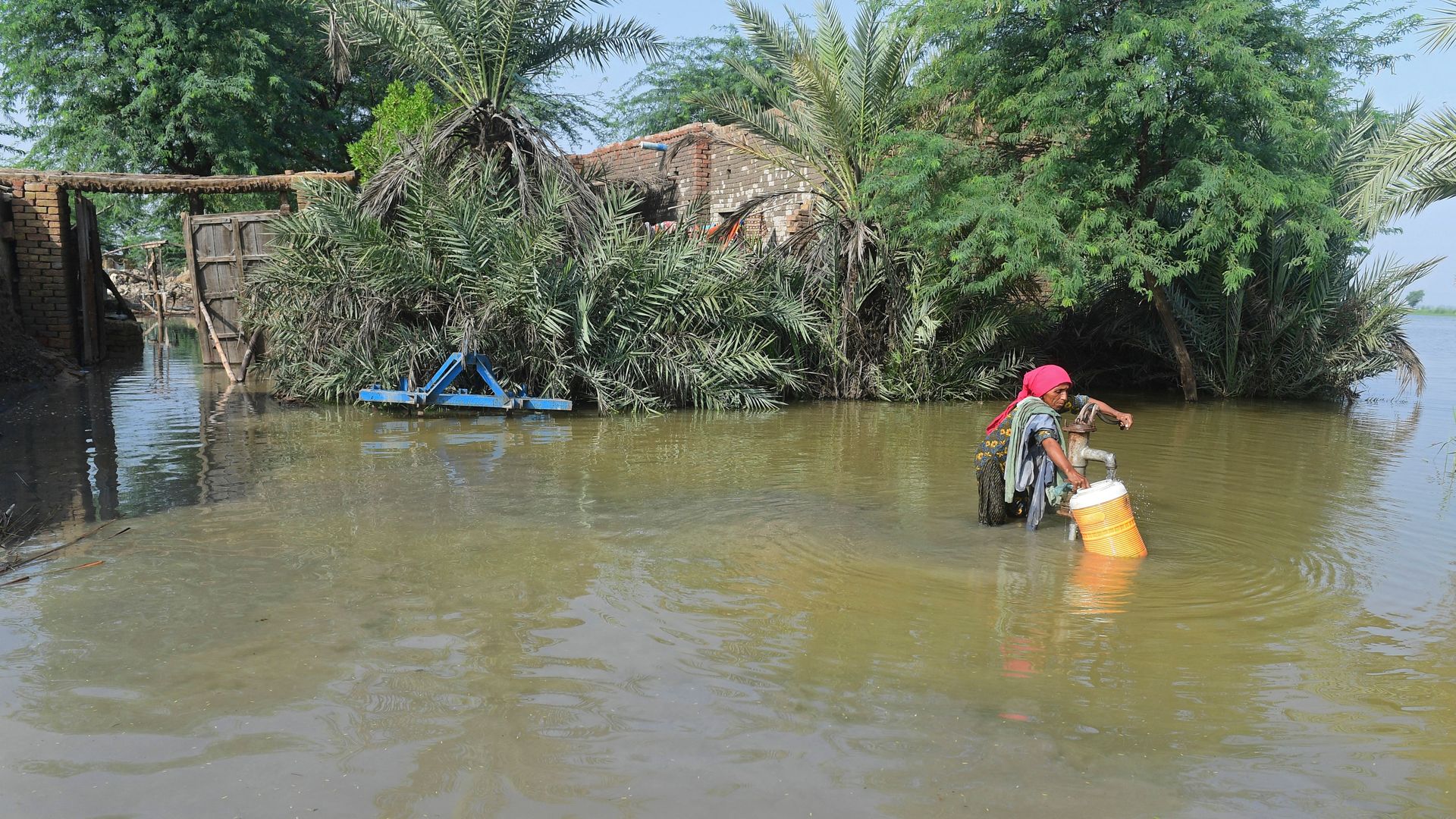Aug 30, 2022 - World
UN Chief: Pakistan floods are "monsoon on steroids"
Add Axios as your preferred source to
see more of our stories on Google.

A flood affected woman fills drinking water from a partially submerged handpump near by her flooded house at Shikarpur in Sindh province, Pakistan, on Aug. 30. Photo: Asif Hassan/AFP via Getty Images
